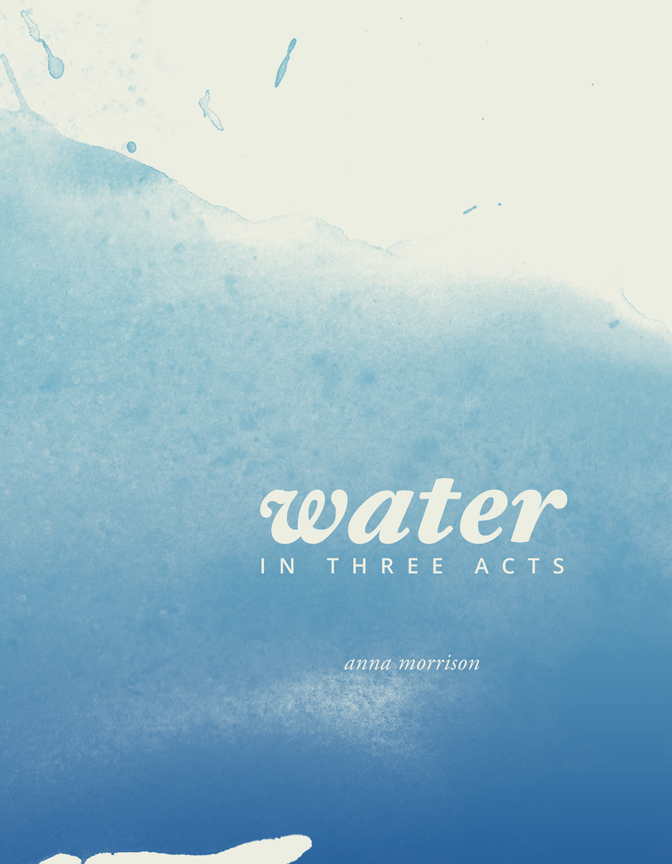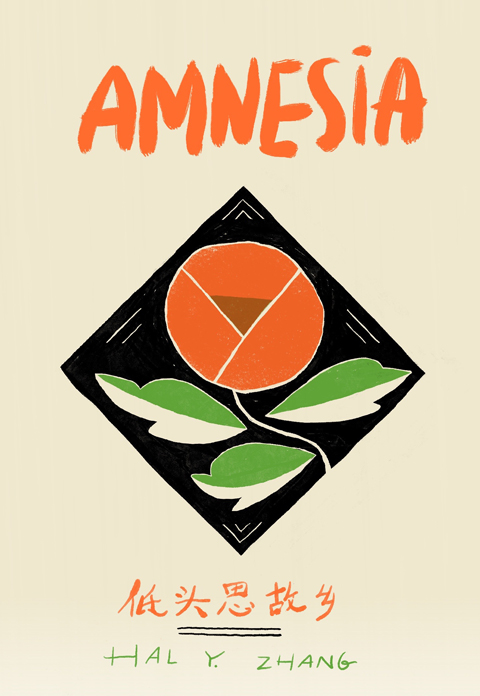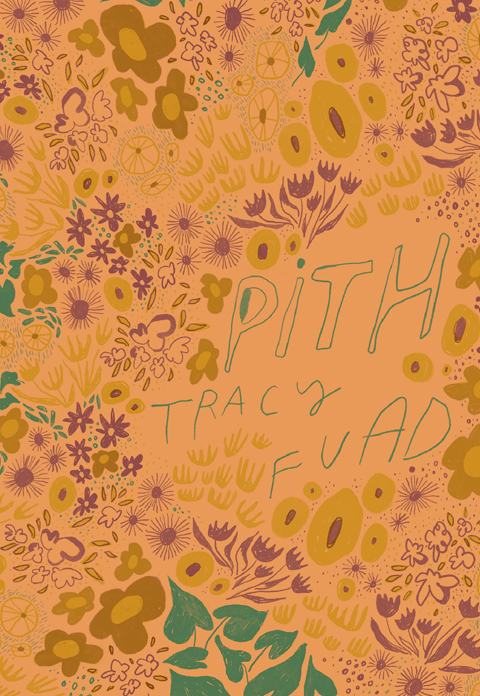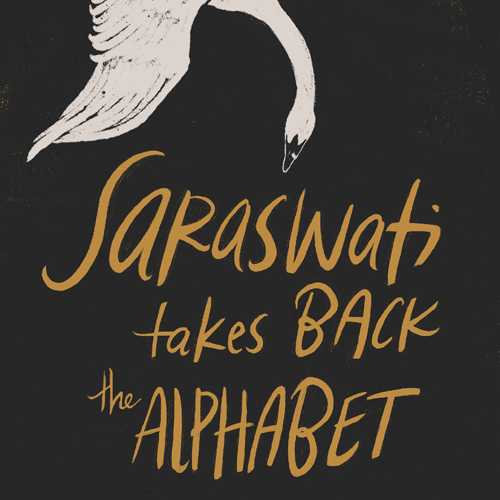Poetry: Rachel Mindell
Nonfiction: Sarah Heady
Interviews: Eloisa Amezcua
Anna Morrison • Water • Book Launch Edition $14.99
Water • Book Launch Edition
~ As a gesture toward the missed experience of an in-person poetry reading, the special edition offers a special “snail mail” version of the traditional book launch: a signed copy and a unique, numbered mini poem. ~
Summary
Knocking over a glass of water—a simple act begins a three-act play. Here, poetry is liquid, taking the shape of its container as concrete poetry, dramatic verse, prose poetry, and open verse. Body and planet, utterance and song—the poem-sequence mirrors the quandary of a human in the Anthropocene, a cataclysmic speck of dust in geologic time. Water in Three Acts chooses to respect peril, manifesting an operatic shipwreck, bells to ladle snow, and improvised songs to scintillate newborn bacteria. Not through the looking glass, but through the spilled glass.
Details
- Selected for the 2020 Emerging Poets Chapbook Series
- Saddle-stitched, risograph cover, 32 pages, 7″ x 9″, FSC-certified paper
- Purchase allows three interactive PDF or EPUB downloads
- Order regular edition
- Order print only
- Order e-book only
Praise
“The language of Anna Morrison’s stunning debut chapbook ‘builds and builds and builds’ until we are submerged in an entirely new world, one where foam speaks, where water comes alive in its containment, where the hum and hush of the early universe is given its own song. Water in Three Acts is profoundly destabilizing and, thereby, utterly transformative. The voices here feel conjured from a deep communion with the sea, vapors, and water-winds that existed before recorded historical time. I felt my language break up and yield as I communed with the energies and images ushered in by these powerful poems. With each line, we are asked to surf and navigate the waves of a singular poetic vision. This chapbook will transform your relationship with the life-giving and death-giving substance we call water.”
–Brynn Saito
“In this chapbook, Morrison uses form and sonic play to have the reader experience this fluctuation between the familiar and unfamiliar.”
–Foglifter
Author
Anna Morrison’s poetry can be read in journals such as BOMB, Fence, Lana Turner, Interim, Puerto del Sol, and Baest: a journal of queer forms & affects. Her poems won the LUMINA and Prism Review poetry prizes, and her critical prose has appeared in Omniverse. Passionate about small-press publishing, she’s served as an editor for Kelsey Street Press and received an MFA in Creative Writing (Poetry) from Saint Mary’s College of CA. Her journal on poetry, art, and poetic practice can be found online at matchlikesyllables.space.
Artwork
Cover by LK James.
Hal Y. Zhang • AMNESIA • Print Only $8.99
AMNESIA • Print Only
Summary
After nearly forgetting her first language, Hal Y. Zhang discovered a jagged hole that could not be filled by a second. AMNESIA, her debut poetry chapbook, grasps at the echoes of her mother and sister tongues, 中文 and English. In both subject and form, these poems excavate the personal and the linguistic and map profound shifts in identity to the shape of words and radicals. Find their buried skins, their bitter unfurling, and divine the root forms of their leaves.
Details
- Selected for the 2020 Emerging Poets Chapbook Series
- Saddle-stitched, risograph cover, 28 pages, 5″ x 7.25″, FSC-certified paper
- Order print + e-book
- Order e-book only
Praise
“‘no one speaks mandarin to me unless / they are desperate.’ Hal Y. Zhang’s poems are funny and plainspoken in ways I didn’t know I needed—and then they swerve into devastating yet nourishing dreamscapes I can’t stop wandering through. For a collection called AMNESIA, it is remarkable how vivid this work is, how visceral, down to ‘gut bacteria’ and ‘consonants for broken birds to nurse.’ This chapbook demonstrates how gaps in memory are themselves wildly generative and embraces the subterranean pathways that open up in (mis)translation. Zhang never lets a reader forget that language is more than the words one recalls—it is accusative light and aphoristic teeth and ‘heart things.’”
—Chen Chen, author of When I Grow Up I Want to Be a List of Further Possibilities
“‘This is chinese, pictographic only for the free trial,’ asserts Hal Y. Zhang’s opening poem, setting up an unfolding of ‘radical loss.’ Just as a shadow life trails immigrants and their children through their days, the shadow language of Chinese animates many of these incisive English lines. Spare and visual, Zhang’s poems capture the longings and misunderstandings that come with migration, as well as ‘what we gain in translation.’ AMNESIA is a powerful distillation of complex experience into the fewest possible words.”
—Adrienne Su, author of Middle Kingdom and Peach State
“With thoughtful nods to Chinese poetic history, Zhang’s poems purposefully dis-orient, highlight dis-ease. One must re-orient, like the immigrant, in order to read. For it is an immigrant’s language—more legible and richer the deeper one’s immersion in two places at once. Striking back at the mute pictograph of Pound and Fenollosa, AMNESIA is a breaking-through of character, a touching and daring medium between selves.”
—Yanyi, author of The Year of Blue Water
“Within Zhang’s AMNESIA, a conflict between tradition and reality emerges. The conflict is often West merging with East, and by the middle of this beautiful chapbook, kanji characters melt into Latin script—tradition into present culture, familial expectation into present desire, the crafted self into the actual self. While the palette is five-thousand years of ancient history, the landscape is the internal rectification of one woman.”
—The US Review of Books
“A bold and staccato dance with form and sound that explores an identity pulled in multiple directions.”
—Independent Book Review
“The tension between languages and cultures is exquisitely illustrated.”
—The Poetry Question
Author
Hal Y. Zhang is a lapsed physicist with hazy memories of once-life in China. She splits her time between the east coast of the United States and the Internet. Her science fiction chapbook Hard Mother, Spider Mother, Soft Mother was published by Radix Media, and her poetry collection Goddess Bandit of the Thousand Arms is forthcoming from Aqueduct Press.
Artwork
Cover by LK James.
Hal Y. Zhang • AMNESIA • Print + E-book $9.99
AMNESIA • Print + E-book
Summary
After nearly forgetting her first language, Hal Y. Zhang discovered a jagged hole that could not be filled by a second. AMNESIA, her debut poetry chapbook, grasps at the echoes of her mother and sister tongues, 中文 and English. In both subject and form, these poems excavate the personal and the linguistic and map profound shifts in identity to the shape of words and radicals. Find their buried skins, their bitter unfurling, and divine the root forms of their leaves.
Details
- Selected for the 2020 Emerging Poets Chapbook Series
- Saddle-stitched, risograph cover, 28 pages, 5″ x 7.25″, FSC-certified paper
- Purchase allows three interactive PDF or EPUB downloads
- Order print only
- Order e-book only
Praise
“‘no one speaks mandarin to me unless / they are desperate.’ Hal Y. Zhang’s poems are funny and plainspoken in ways I didn’t know I needed—and then they swerve into devastating yet nourishing dreamscapes I can’t stop wandering through. For a collection called AMNESIA, it is remarkable how vivid this work is, how visceral, down to ‘gut bacteria’ and ‘consonants for broken birds to nurse.’ This chapbook demonstrates how gaps in memory are themselves wildly generative and embraces the subterranean pathways that open up in (mis)translation. Zhang never lets a reader forget that language is more than the words one recalls—it is accusative light and aphoristic teeth and ‘heart things.’”
—Chen Chen, author of When I Grow Up I Want to Be a List of Further Possibilities
“‘This is chinese, pictographic only for the free trial,’ asserts Hal Y. Zhang’s opening poem, setting up an unfolding of ‘radical loss.’ Just as a shadow life trails immigrants and their children through their days, the shadow language of Chinese animates many of these incisive English lines. Spare and visual, Zhang’s poems capture the longings and misunderstandings that come with migration, as well as ‘what we gain in translation.’ AMNESIA is a powerful distillation of complex experience into the fewest possible words.”
—Adrienne Su, author of Middle Kingdom and Peach State
“With thoughtful nods to Chinese poetic history, Zhang’s poems purposefully dis-orient, highlight dis-ease. One must re-orient, like the immigrant, in order to read. For it is an immigrant’s language—more legible and richer the deeper one’s immersion in two places at once. Striking back at the mute pictograph of Pound and Fenollosa, AMNESIA is a breaking-through of character, a touching and daring medium between selves.”
—Yanyi, author of The Year of Blue Water
“Within Zhang’s AMNESIA, a conflict between tradition and reality emerges. The conflict is often West merging with East, and by the middle of this beautiful chapbook, kanji characters melt into Latin script—tradition into present culture, familial expectation into present desire, the crafted self into the actual self. While the palette is five-thousand years of ancient history, the landscape is the internal rectification of one woman.”
—The US Review of Books
“A bold and staccato dance with form and sound that explores an identity pulled in multiple directions.”
—Independent Book Review
“The tension between languages and cultures is exquisitely illustrated.”
—The Poetry Question
Author
Hal Y. Zhang is a lapsed physicist with hazy memories of once-life in China. She splits her time between the east coast of the United States and the Internet. Her science fiction chapbook Hard Mother, Spider Mother, Soft Mother was published by Radix Media, and her poetry collection Goddess Bandit of the Thousand Arms is forthcoming from Aqueduct Press.
Artwork
Cover by LK James.
Hal Y. Zhang • AMNESIA • E-book $2.99
AMNESIA • E-book
Summary
After nearly forgetting her first language, Hal Y. Zhang discovered a jagged hole that could not be filled by a second. AMNESIA, her debut poetry chapbook, grasps at the echoes of her mother and sister tongues, 中文 and English. In both subject and form, these poems excavate the personal and the linguistic and map profound shifts in identity to the shape of words and radicals. Find their buried skins, their bitter unfurling, and divine the root forms of their leaves.
Details
- Selected for the 2020 Emerging Poets Chapbook Series
- Saddle-stitched, risograph cover, 28 pages, 5″ x 7.25″, FSC-certified paper
- Purchase allows three interactive PDF or EPUB downloads
- Order print + e-book
- Order print book only
Praise
“‘no one speaks mandarin to me unless / they are desperate.’ Hal Y. Zhang’s poems are funny and plainspoken in ways I didn’t know I needed—and then they swerve into devastating yet nourishing dreamscapes I can’t stop wandering through. For a collection called AMNESIA, it is remarkable how vivid this work is, how visceral, down to ‘gut bacteria’ and ‘consonants for broken birds to nurse.’ This chapbook demonstrates how gaps in memory are themselves wildly generative and embraces the subterranean pathways that open up in (mis)translation. Zhang never lets a reader forget that language is more than the words one recalls—it is accusative light and aphoristic teeth and ‘heart things.’”
—Chen Chen, author of When I Grow Up I Want to Be a List of Further Possibilities
“‘This is chinese, pictographic only for the free trial,’ asserts Hal Y. Zhang’s opening poem, setting up an unfolding of ‘radical loss.’ Just as a shadow life trails immigrants and their children through their days, the shadow language of Chinese animates many of these incisive English lines. Spare and visual, Zhang’s poems capture the longings and misunderstandings that come with migration, as well as ‘what we gain in translation.’ AMNESIA is a powerful distillation of complex experience into the fewest possible words.”
—Adrienne Su, author of Middle Kingdom and Peach State
“With thoughtful nods to Chinese poetic history, Zhang’s poems purposefully dis-orient, highlight dis-ease. One must re-orient, like the immigrant, in order to read. For it is an immigrant’s language—more legible and richer the deeper one’s immersion in two places at once. Striking back at the mute pictograph of Pound and Fenollosa, AMNESIA is a breaking-through of character, a touching and daring medium between selves.”
—Yanyi, author of The Year of Blue Water
“Within Zhang’s AMNESIA, a conflict between tradition and reality emerges. The conflict is often West merging with East, and by the middle of this beautiful chapbook, kanji characters melt into Latin script—tradition into present culture, familial expectation into present desire, the crafted self into the actual self. While the palette is five-thousand years of ancient history, the landscape is the internal rectification of one woman.”
—The US Review of Books
“A bold and staccato dance with form and sound that explores an identity pulled in multiple directions.”
—Independent Book Review
“The tension between languages and cultures is exquisitely illustrated.”
—The Poetry Question
Author
Hal Y. Zhang is a lapsed physicist with hazy memories of once-life in China. She splits her time between the east coast of the United States and the Internet. Her science fiction chapbook Hard Mother, Spider Mother, Soft Mother was published by Radix Media, and her poetry collection Goddess Bandit of the Thousand Arms is forthcoming from Aqueduct Press.
Artwork
Cover by LK James.
Interviews • Claire Oleson
Anna Morrison • Water • E-book $2.99
Water • E-book
Summary
Knocking over a glass of water—a simple act begins a three-act play. Here, poetry is liquid, taking the shape of its container as concrete poetry, dramatic verse, prose poetry, and open verse. Body and planet, utterance and song—the poem-sequence mirrors the quandary of a human in the Anthropocene, a cataclysmic speck of dust in geologic time. Water in Three Acts chooses to respect peril, manifesting an operatic shipwreck, bells to ladle snow, and improvised songs to scintillate newborn bacteria. Not through the looking glass, but through the spilled glass.
Details
- Selected for the 2020 Emerging Poets Chapbook Series
- Saddle-stitched, risograph cover, 32 pages, 7″ x 9″, FSC-certified paper
- Purchase allows three interactive PDF or EPUB downloads
- Order signed book launch edition
- Order print + e-book
- Order print book only
Praise
“The language of Anna Morrison’s stunning debut chapbook ‘builds and builds and builds’ until we are submerged in an entirely new world, one where foam speaks, where water comes alive in its containment, where the hum and hush of the early universe is given its own song. Water in Three Acts is profoundly destabilizing and, thereby, utterly transformative. The voices here feel conjured from a deep communion with the sea, vapors, and water-winds that existed before recorded historical time. I felt my language break up and yield as I communed with the energies and images ushered in by these powerful poems. With each line, we are asked to surf and navigate the waves of a singular poetic vision. This chapbook will transform your relationship with the life-giving and death-giving substance we call water.”
–Brynn Saito
“In this chapbook, Morrison uses form and sonic play to have the reader experience this fluctuation between the familiar and unfamiliar.”
–Foglifter
Author
Anna Morrison’s poetry can be read in journals such as BOMB, Fence, Lana Turner, Interim, Puerto del Sol, and Baest: a journal of queer forms & affects. Her poems won the LUMINA and Prism Review poetry prizes, and her critical prose has appeared in Omniverse. Passionate about small-press publishing, she’s served as an editor for Kelsey Street Press and received an MFA in Creative Writing (Poetry) from Saint Mary’s College of CA. Her journal on poetry, art, and poetic practice can be found online at matchlikesyllables.space.
Artwork
Cover by LK James.
Anna Morrison • Water • Print Only $11.99
Water • Print Only
Summary
Knocking over a glass of water—a simple act begins a three-act play. Here, poetry is liquid, taking the shape of its container as concrete poetry, dramatic verse, prose poetry, and open verse. Body and planet, utterance and song—the poem-sequence mirrors the quandary of a human in the Anthropocene, a cataclysmic speck of dust in geologic time. Water in Three Acts chooses to respect peril, manifesting an operatic shipwreck, bells to ladle snow, and improvised songs to scintillate newborn bacteria. Not through the looking glass, but through the spilled glass.
Details
- Selected for the 2020 Emerging Poets Chapbook Series
- Saddle-stitched, risograph cover, 32 pages, 7″ x 9″, FSC-certified paper
- Order signed book launch edition
- Order print + e-book
- Order e-book only
Praise
“The language of Anna Morrison’s stunning debut chapbook ‘builds and builds and builds’ until we are submerged in an entirely new world, one where foam speaks, where water comes alive in its containment, where the hum and hush of the early universe is given its own song. Water in Three Acts is profoundly destabilizing and, thereby, utterly transformative. The voices here feel conjured from a deep communion with the sea, vapors, and water-winds that existed before recorded historical time. I felt my language break up and yield as I communed with the energies and images ushered in by these powerful poems. With each line, we are asked to surf and navigate the waves of a singular poetic vision. This chapbook will transform your relationship with the life-giving and death-giving substance we call water.”
–Brynn Saito
“In this chapbook, Morrison uses form and sonic play to have the reader experience this fluctuation between the familiar and unfamiliar.”
–Foglifter
Author
Anna Morrison’s poetry can be read in journals such as BOMB, Fence, Lana Turner, Interim, Puerto del Sol, and Baest: a journal of queer forms & affects. Her poems won the LUMINA and Prism Review poetry prizes, and her critical prose has appeared in Omniverse. Passionate about small-press publishing, she’s served as an editor for Kelsey Street Press and received an MFA in Creative Writing (Poetry) from Saint Mary’s College of CA. Her journal on poetry, art, and poetic practice can be found online at matchlikesyllables.space.
Artwork
Cover by LK James.
Anna Morrison • Water • Print + E-book $12.99
Water • Print + E-book
Summary
Knocking over a glass of water—a simple act begins a three-act play. Here, poetry is liquid, taking the shape of its container as concrete poetry, dramatic verse, prose poetry, and open verse. Body and planet, utterance and song—the poem-sequence mirrors the quandary of a human in the Anthropocene, a cataclysmic speck of dust in geologic time. Water in Three Acts chooses to respect peril, manifesting an operatic shipwreck, bells to ladle snow, and improvised songs to scintillate newborn bacteria. Not through the looking glass, but through the spilled glass.
Details
- Selected for the 2020 Emerging Poets Chapbook Series
- Saddle-stitched, risograph cover, 32 pages, 7″ x 9″, FSC-certified paper
- Purchase allows three interactive PDF or EPUB downloads
- Order signed book launch edition
- Order print only
- Order e-book only
Praise
“The language of Anna Morrison’s stunning debut chapbook ‘builds and builds and builds’ until we are submerged in an entirely new world, one where foam speaks, where water comes alive in its containment, where the hum and hush of the early universe is given its own song. Water in Three Acts is profoundly destabilizing and, thereby, utterly transformative. The voices here feel conjured from a deep communion with the sea, vapors, and water-winds that existed before recorded historical time. I felt my language break up and yield as I communed with the energies and images ushered in by these powerful poems. With each line, we are asked to surf and navigate the waves of a singular poetic vision. This chapbook will transform your relationship with the life-giving and death-giving substance we call water.”
–Brynn Saito
“In this chapbook, Morrison uses form and sonic play to have the reader experience this fluctuation between the familiar and unfamiliar.”
–Foglifter
Author
Anna Morrison’s poetry can be read in journals such as BOMB, Fence, Lana Turner, Interim, Puerto del Sol, and Baest: a journal of queer forms & affects. Her poems won the LUMINA and Prism Review poetry prizes, and her critical prose has appeared in Omniverse. Passionate about small-press publishing, she’s served as an editor for Kelsey Street Press and received an MFA in Creative Writing (Poetry) from Saint Mary’s College of CA. Her journal on poetry, art, and poetic practice can be found online at matchlikesyllables.space.
Artwork
Cover by LK James.
Tracy Fuad • Pith • Print + E-book $9.99
Pith • Print + E-book
Details
- Winner of the 2019 Anzaldúa Poetry Prize
- Saddle-stitched, risograph cover, 48 pages, 5″ x 7.25″, FSC-certified paper
- Purchase allows three interactive PDF or EPUB downloads
- Order print only
- Order e-book only
Praise
“Pith stands out for the very ways it resists rounding out as a whole. Hollows run the center of the manuscript as though it needed bird bones in order to move around. If place is an import factor of the political, these poems surround the dark center of placelessness. These poems then must find a rooted zone w/in single words, in whatever language be it Kurdish or English of Internet vernacular.”
–Carolina Ebeid
“Tracy Fuad’s PITH ghosts the process of learning a language—of Kurdish, of the Internet, and by proxy, of English. Of the ancient, of the ever-new, of the dominant monstrosity. The poet-speaker is suspended in a fantasy world, but this is not to say she fantasizes: the fantasy has always existed outside of the self, outside of agency. If poetic dissociation lacks detection of time/space, and therefore logic, we find it possible to overhaul those classical poetry oppressors of old. We are born again. And again and again and again and again.”
–Diagram
“This spoke to me. Day-after-day, emails—I get it. And for the rest of the day, I wondered where God fit into all this technology and war of scorched earth?”
–The Poetry Question
Author
Tracy Fuad is the author of DAD DAD DAD DAD DAD DAD DAD (TxtBooks, 2019) and the chapbook Imagined State, which won the 2019 Baltic Writing Residency contest. Her work has appeared in POETRY, Best New Poets, Washington Square Review, Bennington Review, and the Boston Review’s anthology *What Nature* (MIT Press, 2018), and she was the winner of Pacific Literary’s 2018 Poetry Contest. Her writing has been supported by fellowships and residencies from Hedgebrook, Community of Writers at Squaw Valley, the Provincetown Fine Arts Work Center, and the Vermont Studio Center. She lives in Iraqi Kurdistan, where she teaches English at a public university.
Artwork
Cover by LK James.
Tracy Fuad • Pith • Print Only $8.99
Pith • Print Only
Details
- Winner of the 2019 Anzaldúa Poetry Prize
- Saddle-stitched, risograph cover, 48 pages, 5″ x 7.25″, FSC-certified paper
- Order print + e-book
- Order e-book only
Praise
“Pith stands out for the very ways it resists rounding out as a whole. Hollows run the center of the manuscript as though it needed bird bones in order to move around. If place is an import factor of the political, these poems surround the dark center of placelessness. These poems then must find a rooted zone w/in single words, in whatever language be it Kurdish or English of Internet vernacular.”
–Carolina Ebeid
“Tracy Fuad’s PITH ghosts the process of learning a language—of Kurdish, of the Internet, and by proxy, of English. Of the ancient, of the ever-new, of the dominant monstrosity. The poet-speaker is suspended in a fantasy world, but this is not to say she fantasizes: the fantasy has always existed outside of the self, outside of agency. If poetic dissociation lacks detection of time/space, and therefore logic, we find it possible to overhaul those classical poetry oppressors of old. We are born again. And again and again and again and again.”
–Diagram
“This spoke to me. Day-after-day, emails—I get it. And for the rest of the day, I wondered where God fit into all this technology and war of scorched earth?”
–The Poetry Question
Author
Tracy Fuad is the author of DAD DAD DAD DAD DAD DAD DAD (TxtBooks, 2019) and the chapbook Imagined State, which won the 2019 Baltic Writing Residency contest. Her work has appeared in POETRY, Best New Poets, Washington Square Review, Bennington Review, and the Boston Review’s anthology *What Nature* (MIT Press, 2018), and she was the winner of Pacific Literary’s 2018 Poetry Contest. Her writing has been supported by fellowships and residencies from Hedgebrook, Community of Writers at Squaw Valley, the Provincetown Fine Arts Work Center, and the Vermont Studio Center. She lives in Iraqi Kurdistan, where she teaches English at a public university.
Artwork
Cover by LK James.
Tracy Fuad • Pith • E-book $2.99
Pith • E-book
Details
- Winner of the 2019 Anzaldúa Poetry Prize
- Saddle-stitched, risograph cover, 48 pages, 5″ x 7.25″, FSC-certified paper
- Purchase allows three interactive PDF or EPUB downloads
- Order print + e-book
- Order print book only
Praise
“Pith stands out for the very ways it resists rounding out as a whole. Hollows run the center of the manuscript as though it needed bird bones in order to move around. If place is an import factor of the political, these poems surround the dark center of placelessness. These poems then must find a rooted zone w/in single words, in whatever language be it Kurdish or English of Internet vernacular.”
–Carolina Ebeid
“Tracy Fuad’s PITH ghosts the process of learning a language—of Kurdish, of the Internet, and by proxy, of English. Of the ancient, of the ever-new, of the dominant monstrosity. The poet-speaker is suspended in a fantasy world, but this is not to say she fantasizes: the fantasy has always existed outside of the self, outside of agency. If poetic dissociation lacks detection of time/space, and therefore logic, we find it possible to overhaul those classical poetry oppressors of old. We are born again. And again and again and again and again.”
–Diagram
“This spoke to me. Day-after-day, emails—I get it. And for the rest of the day, I wondered where God fit into all this technology and war of scorched earth?”
–The Poetry Question
Author
Tracy Fuad is the author of DAD DAD DAD DAD DAD DAD DAD (TxtBooks, 2019) and the chapbook Imagined State, which won the 2019 Baltic Writing Residency contest. Her work has appeared in POETRY, Best New Poets, Washington Square Review, Bennington Review, and the Boston Review’s anthology *What Nature* (MIT Press, 2018), and she was the winner of Pacific Literary’s 2018 Poetry Contest. Her writing has been supported by fellowships and residencies from Hedgebrook, Community of Writers at Squaw Valley, the Provincetown Fine Arts Work Center, and the Vermont Studio Center. She lives in Iraqi Kurdistan, where she teaches English at a public university.
Artwork
Cover by LK James.
Prism of Poetry: An Interview with Illustrator and Designer LK James
Poetry: Shira Dentz
Shilpa Kamat • Saraswati Takes Back the Alphabet • Print Only $8.99
Saraswati Takes Back the Alphabet • Print Only
Details
- Selected for the 2019 Emerging Poets Chapbook Series
- Saddle-stitched, risograph cover, 44 pages, 5″ x 7″, FSC-certified paper
- Order print + e-book
- Order e-book only
Praise
“Saraswati Takes Back the Alphabet bursts onto the page in pieces, between languages, the product of a colonial past imagining a future in which “everyone / uses plural in the singular.” Unfolding in India, the United States, and globally, these poems probe the ways that history gets told by oppressors and how institutions from museums to schools reproduce that violence. Saraswati Takes Back the Alphabet aims to write through history, otherwise: to take back not just the alphabet but syntax too. Kamat’s lyric vision is vast, particular, and urgent, pointing us always towards the horizon and whatever lies beyond.”
–Stephanie Young
“Saraswati Takes Back the Alphabet feels like a gift, though I don’t want to assume it is for me, and I don’t want to intrude on the beauty of its landscape. Kamat is both fierce and gentle in these poems as she allows the reader to see into a history that is at once personal, local, trans-national, and global. Kamat doesn’t excuse the colonizers, nor does she excuse those who offer alibis for them. She insists that the reader acknowledge history, its violence, and how that history and violence has trickled down for generations, how it sits in language, museums, pop culture, elementary schools. She does this with striking beauty and clarity of voice, writing in both English and Konkani: ‘Kittle ghant zalle? / the moth ate the one / someone stole the two / hid it inside the moon.’”
–Hilary Brown
“Any verse worthy of the name poetry makes language and the culture it supports new. Shilpa Kamat’s engaging Saraswati Takes Back the Alphabet does just that. Her newness is not, however, for the sake of experimentation, but grows out of a fundamental condition of humankind: migration. The Konkani culture and language of southwest India are the starting point for the poet’s search for poetic form. The layers of culture—Hindu, Portuguese, British, among others—are then translated into present-day America; translated not so much in the primary sense of one language to another (although there is that), but translated as in changed or moved from one place to another, especially from a condition bound by time to one that is timeless. These poems sing to the places we all find and the inevitable displacement we feel.”
–Greg Hewett, author of Blindsight
Author
Shilpa Kamat is a writer, educator, and healing arts practitioner based in Northern California. She has an MFA in Creative Writing from Mills College, where she was awarded the Marion Hood Boess Haworth Prize. She was a finalist for Tu Books’ New Visions award. Her work is informed by her intersectional identities, her spiritual journey, her diverse communities, and the natural world.
Artwork
Cover by LK James.
Shilpa Kamat • Saraswati Takes Back the Alphabet • E-book $2.99
Saraswati Takes Back the Alphabet • E-book
Details
- Selected for the 2019 Emerging Poets Chapbook Series
- Saddle-stitched, risograph cover, 44 pages, 5″ x 7″, FSC-certified paper
- Purchase allows three interactive PDF or EPUB downloads
- Order print + e-book
- Order print book only
Praise
“Saraswati Takes Back the Alphabet bursts onto the page in pieces, between languages, the product of a colonial past imagining a future in which “everyone / uses plural in the singular.” Unfolding in India, the United States, and globally, these poems probe the ways that history gets told by oppressors and how institutions from museums to schools reproduce that violence. Saraswati Takes Back the Alphabet aims to write through history, otherwise: to take back not just the alphabet but syntax too. Kamat’s lyric vision is vast, particular, and urgent, pointing us always towards the horizon and whatever lies beyond.”
–Stephanie Young
“Saraswati Takes Back the Alphabet feels like a gift, though I don’t want to assume it is for me, and I don’t want to intrude on the beauty of its landscape. Kamat is both fierce and gentle in these poems as she allows the reader to see into a history that is at once personal, local, trans-national, and global. Kamat doesn’t excuse the colonizers, nor does she excuse those who offer alibis for them. She insists that the reader acknowledge history, its violence, and how that history and violence has trickled down for generations, how it sits in language, museums, pop culture, elementary schools. She does this with striking beauty and clarity of voice, writing in both English and Konkani: ‘Kittle ghant zalle? / the moth ate the one / someone stole the two / hid it inside the moon.’”
–Hilary Brown
“Any verse worthy of the name poetry makes language and the culture it supports new. Shilpa Kamat’s engaging Saraswati Takes Back the Alphabet does just that. Her newness is not, however, for the sake of experimentation, but grows out of a fundamental condition of humankind: migration. The Konkani culture and language of southwest India are the starting point for the poet’s search for poetic form. The layers of culture—Hindu, Portuguese, British, among others—are then translated into present-day America; translated not so much in the primary sense of one language to another (although there is that), but translated as in changed or moved from one place to another, especially from a condition bound by time to one that is timeless. These poems sing to the places we all find and the inevitable displacement we feel.”
–Greg Hewett, author of Blindsight
Author
Shilpa Kamat is a writer, educator, and healing arts practitioner based in Northern California. She has an MFA in Creative Writing from Mills College, where she was awarded the Marion Hood Boess Haworth Prize. She was a finalist for Tu Books’ New Visions award. Her work is informed by her intersectional identities, her spiritual journey, her diverse communities, and the natural world.
Artwork
Cover by LK James.
Shilpa Kamat • Saraswati Takes Back the Alphabet • Print + E-book $9.99
Saraswati Takes Back the Alphabet • Print + E-book
Details
- Selected for the 2019 Emerging Poets Chapbook Series
- Saddle-stitched, risograph cover, 44 pages, 5″ x 7″, FSC-certified paper
- Purchase allows three interactive PDF or EPUB downloads
- Order print only
- Order e-book only
Praise
“Saraswati Takes Back the Alphabet bursts onto the page in pieces, between languages, the product of a colonial past imagining a future in which “everyone / uses plural in the singular.” Unfolding in India, the United States, and globally, these poems probe the ways that history gets told by oppressors and how institutions from museums to schools reproduce that violence. Saraswati Takes Back the Alphabet aims to write through history, otherwise: to take back not just the alphabet but syntax too. Kamat’s lyric vision is vast, particular, and urgent, pointing us always towards the horizon and whatever lies beyond.”
–Stephanie Young
“Saraswati Takes Back the Alphabet feels like a gift, though I don’t want to assume it is for me, and I don’t want to intrude on the beauty of its landscape. Kamat is both fierce and gentle in these poems as she allows the reader to see into a history that is at once personal, local, trans-national, and global. Kamat doesn’t excuse the colonizers, nor does she excuse those who offer alibis for them. She insists that the reader acknowledge history, its violence, and how that history and violence has trickled down for generations, how it sits in language, museums, pop culture, elementary schools. She does this with striking beauty and clarity of voice, writing in both English and Konkani: ‘Kittle ghant zalle? / the moth ate the one / someone stole the two / hid it inside the moon.’”
–Hilary Brown
“Any verse worthy of the name poetry makes language and the culture it supports new. Shilpa Kamat’s engaging Saraswati Takes Back the Alphabet does just that. Her newness is not, however, for the sake of experimentation, but grows out of a fundamental condition of humankind: migration. The Konkani culture and language of southwest India are the starting point for the poet’s search for poetic form. The layers of culture—Hindu, Portuguese, British, among others—are then translated into present-day America; translated not so much in the primary sense of one language to another (although there is that), but translated as in changed or moved from one place to another, especially from a condition bound by time to one that is timeless. These poems sing to the places we all find and the inevitable displacement we feel.”
–Greg Hewett, author of Blindsight
Author
Shilpa Kamat is a writer, educator, and healing arts practitioner based in Northern California. She has an MFA in Creative Writing from Mills College, where she was awarded the Marion Hood Boess Haworth Prize. She was a finalist for Tu Books’ New Visions award. Her work is informed by her intersectional identities, her spiritual journey, her diverse communities, and the natural world.
Artwork
Cover by LK James.







